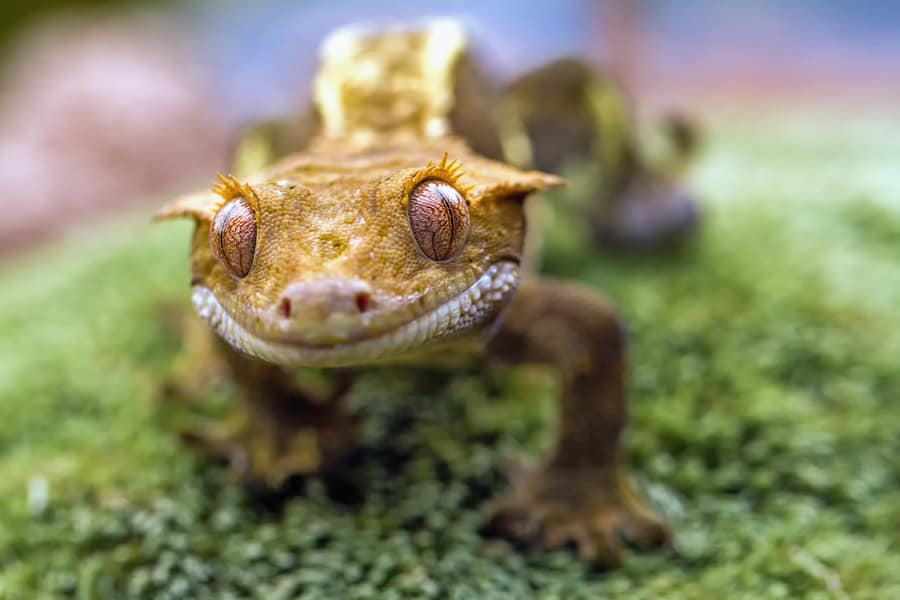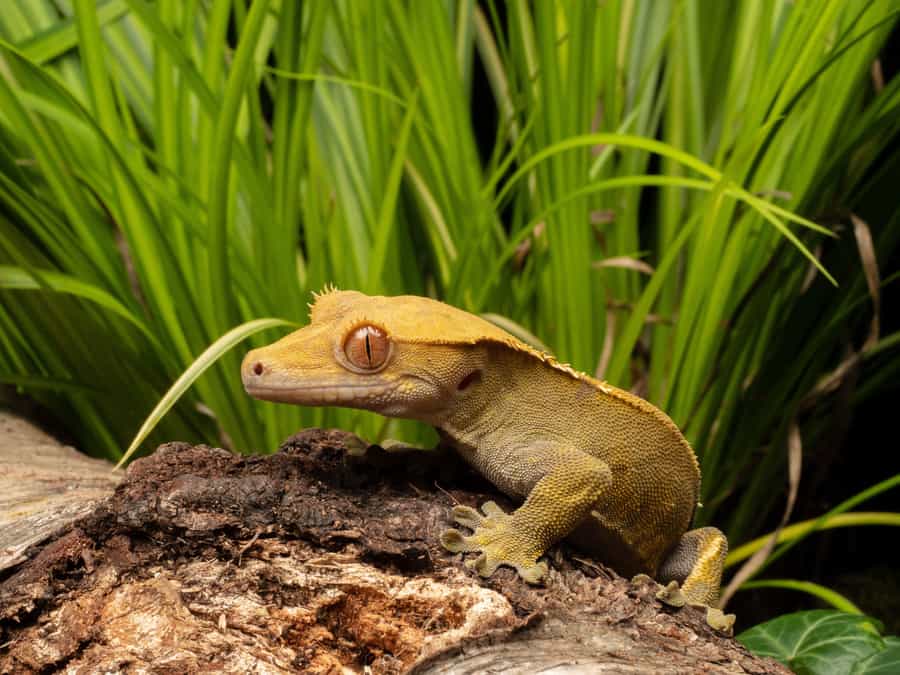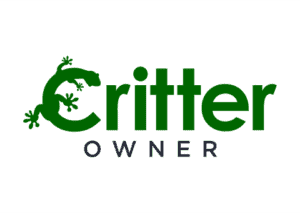
When first getting a crested gecko, the owner should be aware of its needs, including substances that could possibly harm it. Although they are a good first pet because of their fairly easy requirements, they do still have issues to look out for. If the owner does not look into such issues, the gecko may experience unnecessary stress, become ill, or even experience a fatal issue.
Some of the main things that are harmful to crested geckos include certain foods, environmental factors, and stressors. When left unresolved, the gecko may become stressed or ill, possibly to the point of needing a vet.
As you read through this guide, take mental note of which factors need to be avoided and better alternatives for your crested gecko’s health and wellbeing.
5 Bad Foods for Crested Geckos
Because crested geckos require both plant matter and insects, an owner may struggle to keep track of balancing nutritional value with being sure that the food they are providing is safe. Unfortunately, crested geckos are sensitive to certain substances in some foods and may even find them toxic.
Toxic Foods
These foods should never be fed to a crested gecko under any circumstances.
Citrus
Regardless of the circumstances, owners should never feed citrus to their crested gecko. Citrus contains too much Vitamin C and oxalic acid for a crested gecko.
While vitamin C often causes diarrhea, oxalic acid keeps the crested gecko from absorbing calcium, an essential nutrient to prevent metabolic bone disease (which this species is particularly prone to).
Also, the citrus contains high amounts of acid, which may cause diarrhea.
There are plenty of fruit alternatives to citrus, particularly soft fruits. However, the owner should always check that the specific food they are providing is healthy for the crested gecko.
Avocado
Because avocado contains persin, it is toxic and even deadly to a lot of birds and reptiles. Because of this consistent pattern, owners should avoid taking the risk of feeding this item to their crested gecko.
If the owner is looking for high-protein options, they can provide insects to the crested gecko instead.
Unhealthy Foods
Although they will not kill the crested gecko, they may cause nutritional imbalance or other issues, especially if fed too often.
Mealworms
Although they are typically a good fit for reptiles, they are not the greatest choice for a crested gecko, except for very occasionally. (Also, crested geckos tend to not enjoy eating mealworms as much.) This is because mealworms have an undigestible skeleton and too much fat content.
If the crested gecko eats too many mealworms, it can experience difficulty with digestion because of the previously mentioned issues. However, they also contain some crucial vitamins and minerals, which is often why owners are tempted to use this option.
Certain fruits and Dubia Cockroaches contain a lot of these vitamins and minerals without the side effects, so they are good alternatives. Also, crickets and soldier fly larva provide good alternatives if the owner is just looking for a protein source.
Other Non-Soft Fruits
Because other non-soft fruits contain too much phosphorus (which the crested gecko should only have sparingly) and too little calcium, they can cause an imbalance with the crested gecko. Again, carefully selected soft fruits are the better option.
Corn
Although it is not deadly, corn provides the wrong nutrients for crested geckos. Since it adds no nutritional value (and crested geckos do not eat grains), corn has no needed alternatives.
To learn if crested geckos can be overfed, please check out this helpful article I wrote.
3 Environmental Conditions Bad for Crested Geckos
Although these issues are not quite as deadly as toxic foods, they can be harmful if left unresolved. Because of this, the owner should check regularly that the ventilation, humidity, and temperature are at safe levels.
Not enough ventilation
If the crested gecko’s terrarium does not contain proper ventilation, it can easily develop respiratory infections, especially since it requires a humid environment. It can also develop bacterial infections on the skin. Both of these problems can prove deadly if left untreated.
Overly dry (below 50%)
Because crested geckos are still tropical creatures, they also need a moist environment. If their terrarium is too dry, they will suffer from serious shedding problems. Fortunately, a fogger or misting system typically provides sufficient humidity.
Although the cage should be at about 50% humidity at all times, it may go up to 80-90% immediately after misting (which should be done a few times a day).
Temperatures above 82° Fahrenheit
Because crested geckos are highly sensitive to heat, overly high temperatures can actually kill them. If the house temperature is in the desired temperature range (preferably 75 to 78 degrees Fahrenheit, but as low as 70 should be okay), the owner may avoid using heat sources at all to keep the gecko from overheating.
Dirty terrarium
As with all lizards and pets in general, crested geckos need to have a relatively clean environment to avoid diseases and reduce stress. They may even develop parasitical infections or struggle with low quality air, creating a similar issue to poor ventilation.
To avoid these problems, the owner should check daily for smaller items to clean up and clean the terrarium and shelters thoroughly at least once a month. The owner should use hot water, soap, and reptile safe cleaners only. If there are indications of a bacterial or fungal issue, the owner will also need to use disinfectants specifically designed to work safely with reptiles.
Not enough hiding spots
When the crested gecko needs to cool down or wants to feel safe, it often seeks out hiding spots. Because of this, the owner should ensure that they provide some shelters in the terrarium. If they do not do this, the gecko will become extremely stressed.
Nonvertical terrarium
Although a horizontal terrarium works for most lizards, crested geckos naturally prefer to climb. Because of this, the terrarium should have a climbing space since the crested gecko tends to enjoy heights. Also, the enclosure should be relatively vertical. If it is not, the gecko may become lethargic from being unable to climb or even stressed.
Having no lid on the terrarium
Because crested geckos can climb walls, they can easily escape from their terrarium if it is left open. These escape runs are extremely dangerous, especially if other pets are in the house. Even if the crested gecko decides not to leave the terrarium for whatever reason, any pets can easily access the terrarium and harm the crested gecko.
5 Things Pet Owners Do that are Bad for Crested Geckos
Even though these problems are not intentional, pet owners may accidentally create a stressful or dangerous environment for crested geckos. The following are a few other things that owners should avoid doing:
Loud noises
The room the crested gecko is in should be fairly quiet not only because it needs a calm environment, but also because the crested gecko is nocturnal and needs to be able to sleep in the daytime. If it is not provided a fairly quiet space, the gecko will experience high-stress levels and may struggle to have a regular sleep schedule.
Allowing children or pets to be around the gecko unsupervised
If children or pets have access to the gecko without supervision (or, for pets, if they have access to the gecko at all), they may harm the gecko or cause it stress. Also, children may be fairly loud around the gecko, which, as mentioned before, is not a good thing.

Having too many crested geckos in the same terrarium
Especially if the crested geckos are introduced together as adults as opposed to babies, they may squabble and fight over resources (including food, water, basking spots, etc.), which can create a stressful environment. If the geckos become too intense, they can possibly cause each other injuries.
This is an especially large risk with two or more male crested geckos in the same enclosure. Also, a male and female should not be together unless they are supervised and intended to mate. If they are left together, a female can end up laying too many eggs and struggle with issues such as metabolic bone disease.
Overhandling
Like most popular lizard pets, the crested gecko is fairly docile and able to be handled, but it can also get stressed out easily. Because of this, owners should not exceed 15 minutes a day handling. Also, they should avoid handling the gecko when it is showing clear signs of stress.
For a complete breakdown of the health impacts of crested geckos shedding their tails, check out this article.
Also, although crested geckos do have intriguing sticky pads, owners should refrain from playing with them, instead of holding the gecko securely at a relatively horizontal angle. If the owner tries playing with its pads by suddenly holding it vertically, they risk the gecko not expecting it and falling to the ground or hooking its claws. Even if the gecko turns out fine, it will become stressed and terrified of handling.
Overfeeding
Although an owner may try to feed more food to help the gecko quickly gain weight (or simply because they don’t know the right amount to feed), this can actually cause more problems. Especially if the owner uses particularly active insects such as crickets, putting too many insects and overfeeding will actually stress out the gecko. The insects will often pester the gecko, who does not have an appetite to eat them because it has already eaten.
Signs Your Crested Gecko is Stressed or Ill
When a crested gecko is stressed, it often tries to escape the stressful situation by hiding or, if it is being handled, wriggling away. If it constantly feels stressed, it may appear lethargic, bury itself in the substrate, or constantly attempt to get out of the cage. It may also breathe rapidly, chirp, and growl if it feels threatened at the moment. Finally, if the threat continues, or if the gecko believes it is about to be harmed, it may try to bite its owner.
Unfortunately, a crested gecko’s symptoms of illness are not as straightforward, as the same symptoms can be from different problems. For instance, lethargy is not only a sign of stress—it can also indicate any number of illnesses. Also, losing weight or a consistent lack of appetite may indicate stress, a parasitical infection, overly low temperatures, and other issues. Finally, difficulty climbing and vomiting may point to many different problems.
However, there are a few symptoms that almost always point towards a specific illness. Sunken eyes accompanied by wrinkly skin is a clear sign of dehydration. Also, runny stools are often from digestion issues or parasitical infection. Finally, a floppy tail or soft bones are indicators of metabolic bone disease, an illness that crested geckos are prone to.
If the crested gecko appears to be suffering from these symptoms, the owner should take action immediately, even if they are uncertain whether the behavior is normal. If the gecko is allowed to have problems for too long, the illness may become difficult to treat and even cause permanent damage.
First, the owner should remove any causes of stress and check for harmful things in the crested gecko’s environment. For instance, they may move the terrarium to a quieter place, separate the gecko from any other crested geckos it is sharing the enclosure with, and take a look at the temperature, humidity, and diet. If the gecko is not in a stressful environment and has been provided proper care, the owner may need to look into whether the gecko has a disease, using the symptoms described earlier as a starting point.
When Should You Consult a Veterinarian?
Understandably, the owner may not be able to afford a veterinarian for every problem the crested gecko has. Because of this, the owner should try to help the gecko recover on their own, so long as it is not an issue that could kill the gecko in a matter of hours, metabolic bone disease, or parasitical infection.
If the issue persists or worsens, or if the gecko is facing the previously mentioned issues, the owner should consult a veterinarian. To make the most of the visit, the owner should continue observing the gecko to see if any other issues pop up, along with providing items such as stools if needed. Also, the owner should ensure the gecko is used to handling beforehand to avoid unnecessary stress.
Conclusion
Although crested geckos are fairly docile and easy reptile pets to take care of, they still have some issues that the owner needs to look out for. For instance, the owner should keep a close eye on their diet and create a low-stress, healthy environment.
Along with this, they should check up on the crested gecko regularly to be sure it is not exhibiting odd behavior. Even with these needs, however, owning a crested gecko is a highly rewarding experience.
